12 problems? That's a bit much isn't it? Boilers have more problems than unemployed millennials.
- Top 12 (most common) boiler problems:
- #1 Boiler Leaking
- #2 Low boiler pressure
- #3 Boiler Kettling/Noisy Boiler
- #4 No Heating or Hot Water
- #5 Radiator Faults
- #6 Frozen Condensate Pipe
- #7 Boiler Not Responding To Thermostat
- #8 Hot Water Doesn't Work But Heating Does
- #9 Pilot Light Keeps Going Out
- #10 Boiler Won't Turn On (No Power)
- #11 Hot Water But No Heating
- #12 Boiler Not Heating Water Enough
- Do You Need A New Boiler?
We usually don’t quite appreciate our boilers until something goes wrong, and only then does it hit us just how unbearable living in the cold and without hot water really is. Sometimes, you’d think boilers break down just because they feel taken for granted.
Unfortunately, no matter what type of boiler you have, the reality is that many boiler problems could be prevented with regular maintenance and annual services. Rest assured, if your boiler is still under warranty, help won’t be far away.
Astonishingly, however, according to Which? 1 in 5 boilers breaks down every single year. Yep, 1 in 5. That's a lot. If you’ve got five boilers in your house, you’d better have a technician on retainer.
In this boiler troubleshooting guide, we will explore the 12 most common boiler problems and solutions and if all else fails you can always consider a boiler replacement.
Note: If you have an old boiler that’s no longer under warranty, you might want to consider a new boiler installation, get a free quote now.
Top 12 (most common) boiler problems:
#1 Boiler Leaking
A boiler leak is usually a minor issue caused by superficial holes within the pipework, as well as broken seals, or valves. Often this can be caused by the pressure being too high. In a way, this is just your boiler sweating because it’s under pressure.
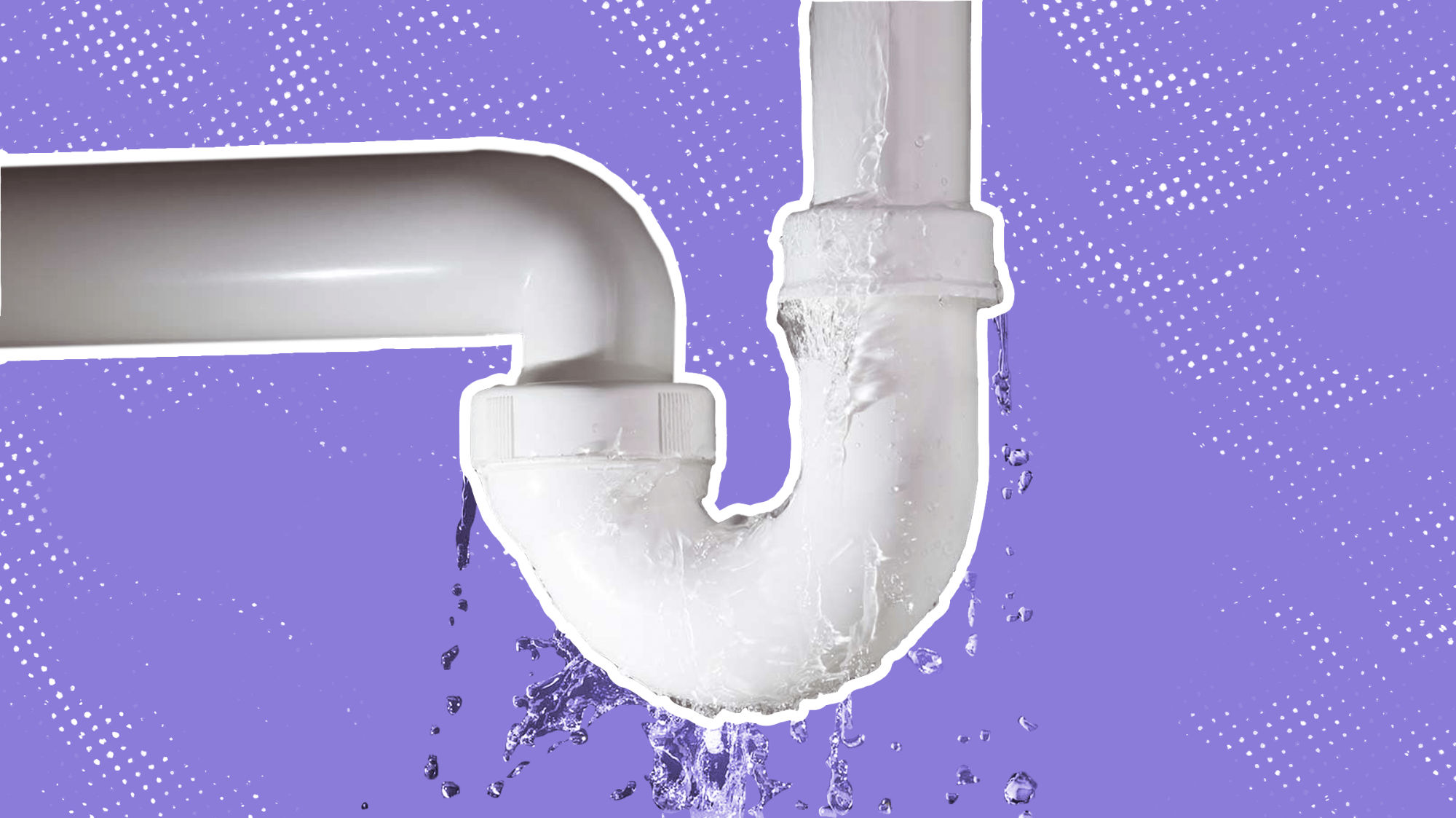
However, sometimes a boiler leaking can be a sign of a more serious issue, for example, significant corrosion to the heat exchanger or other internal components. In this case, it’s more a sign of your boiler bleeding.
Here are some of the most common combi boiler problems that result in leaks, make sure to refer to our comprehensive boiler leaking guide for a more in-depth analysis.
Poorly installed or corroded pipework.
Pressure issue (too much).
Leaky or faulty heat exchanger.
Leaks from seals or internal parts.
So, what can you do? Unlike humans, boilers can’t relieve the pressure with meditation and listening to Bob Marley. Ultimately you should consult a registered Gas Safe Engineer to investigate the issue and carry out any boiler repairs.
If the leaking is caused by significant corrosion, especially to key components such as the PCB or the heat exchanger, you should be prepared to pay significant repair costs. Not strange, when an Engineer is basically performing surgery.
Typically, these can end up costing anywhere between £400-£500, so if your boiler is old and no longer covered by a warranty it may make more financial sense to get a new boiler installed.
Check out our video on the most common boiler problems below:
If you recently found out that you have a condemned boiler it can be a bit of a shock, if you are still considering what to do, refer to our guide on whether to replace or repair your boiler.
#2 Low boiler pressure
Your boiler relies on an optimum pressure level in order to maintain the circulation of water throughout the system. It’s a bit spoiled like that.
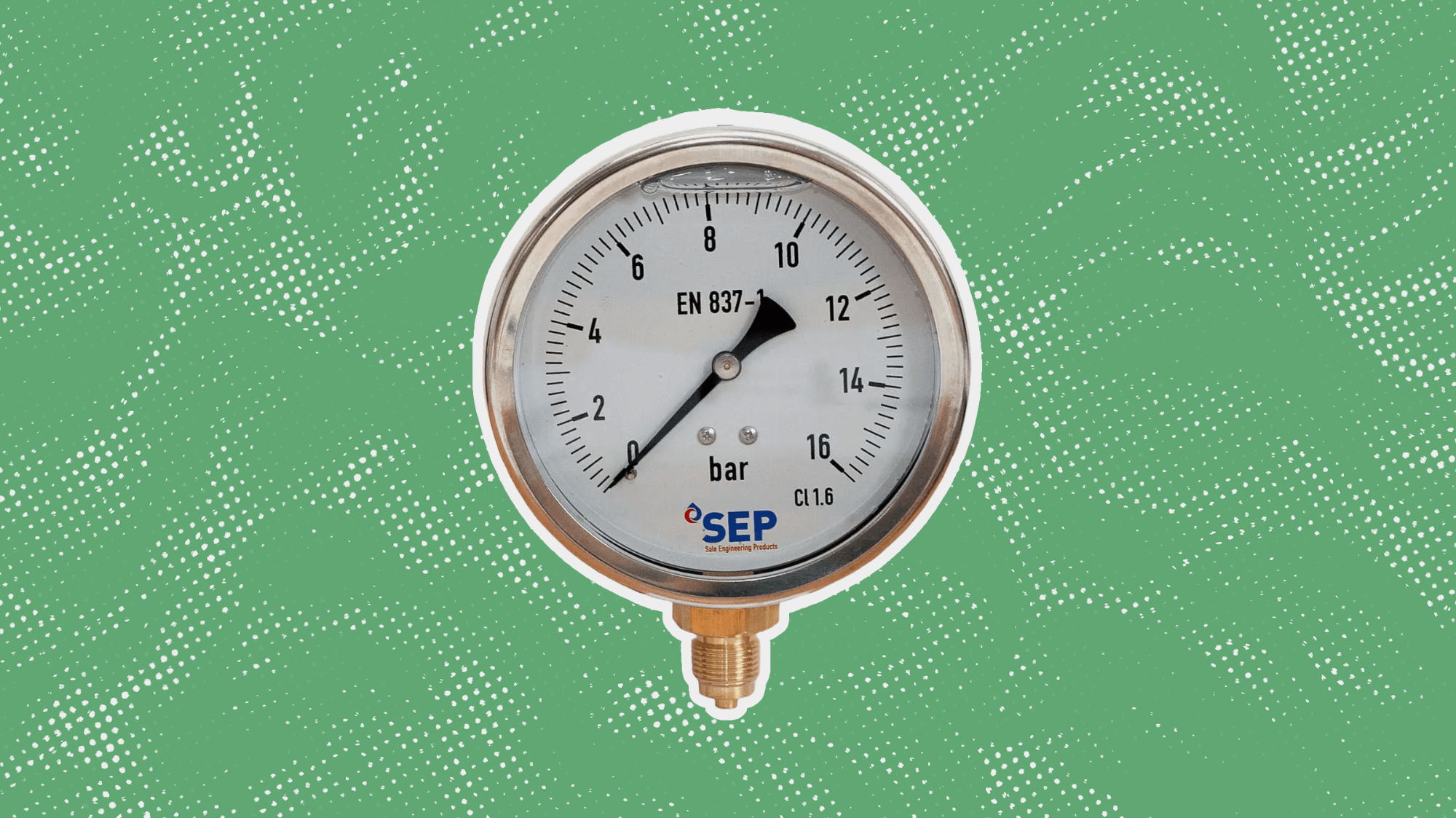
If it drops too low, it is common for the boiler to lock out and display a low-pressure error code. You can usually identify low pressure by looking at the pressure gauge - that indicator is not a speedometer, in case you wondered.
Low boiler pressure can be caused by a leak within the system, typically around the bends of pipes, where you may discover failed joints and seals.
Leaks caused by holes within major boiler components can also result in a loss of pressure, typically as a result of corrosion.
If you spot what appears to be a leak, you should not attempt to open the boiler yourself and instead consult a Gas Safe Engineer.
If there is no obvious leak, you can always try topping up your boiler pressure yourself, this is a relatively easy thing to do. If you can read a dial and handle a garden hose, you can top off your boiler.
Related reading:
Curious to know which boiler brand performed worst? Find out in our report of the worst boilers.
#3 Boiler Kettling/Noisy Boiler
Sudden changes in the types of noises being produced by your boiler may be a sign of an underlying problem. In this way, a boiler is like your car or your baby - sudden noises are usually a bad thing.
A build-up of limescale can be a common cause of boiler noises. When limescale deposits build up on the heat exchanger, they become overheated, which can result in the production of steam and bubbling, causing a familiar whistling noise, referred to as kettling.
Thankfully, these causes can be dealt with relatively easily with regular boiler maintenance or as and when they occur.
During your annual service or when required, the engineer can cleanse your system with chemicals and high pressure to improve water quality and add a limescale inhibitor, to help reduce the build-up of mineral deposits.
Is your boiler making a different type of noise? Find out why in our noisy boiler guide. If the noise is classical music, we can’t help you, but we sure hope it’s attuned well.
PS If you smell gas from your boiler this is an emergency and you should call the Emergency Gas number (0800 111 999) immediately.
#4 No Heating or Hot Water
There can be many underlying issues that may result in a faulty boiler that has no hot water or heating and experiences a complete “lockout”. Now here’s the real issue, usually found out when you’re taking a shower.
This can include a faulty pilot light, frozen pipes, a faulty diverter valve, thermostat issues and even a problem with the boiler's pressure.
If your central heating won't come on the best first step to take is to check whether the issue is related to a pressure issue.
You can do this by checking your boiler's pressure gauge – if it is below 1 and not within the normal range (typically coloured green) you may have low pressure.
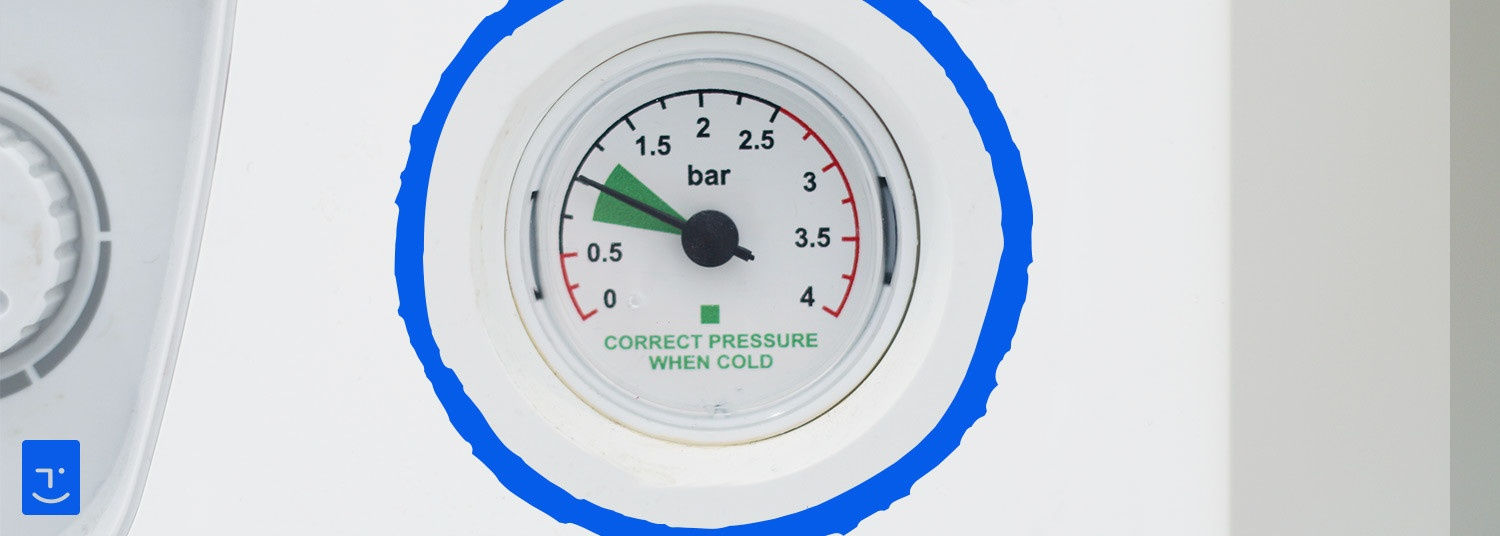
If the pressure is normal and there is not any obvious cause you will need to contact your boiler manufacturer for further assistance.
A problem with the diverter valve, diaphragm or any other internal component will need to be investigated and if needed be repaired by a registered Gas Safe Engineer. They will be able to help you repair it - or they should, since it’s their job.
Want to learn about the future of heating in the UK? Check out the latest innovation of hydrogen boilers.
#5 Radiator Faults
Are you finding that some radiators are not getting as hot as they used to? Radiators that are cold at the bottom or that have cold patches and unevenly distributed heat are typically the results of too much air in the radiators or a result of sludge build-up.
Too much air within your radiators can be resolved by bleeding your radiators. This is a relatively simple process, albeit slightly messy. But you can even do this if you’re not fond of real blood - the radiators usually don’t scream.
However, if after bleeding your radiators the issue is not resolved, the culprit is likely sludge. Over time rust and dirt naturally build up within the heating water, until eventually the formation of the thick, brown substance known as sludge develops.
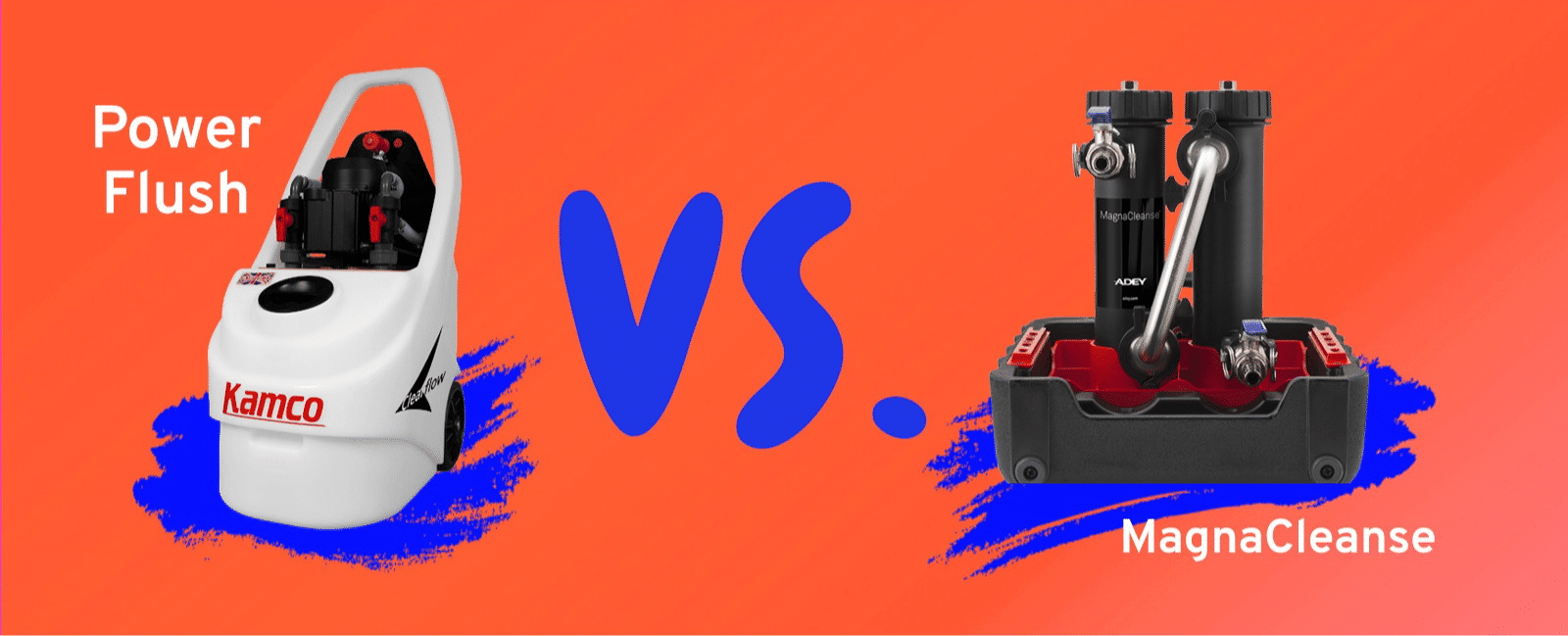
Sludge can be dealt with by a chemical flush, or a more intense power flush. Essentially, by using high pressure and a cocktail of chemicals, these flushes give your heating system and boiler a deep clean, helping to remove residues and sludge. It’s like a fancy detox in Tibet for your heating system.
Learn all about combi boilers in our what is a combi boiler guide.
#6 Frozen Condensate Pipe
The condensate pipe is responsible for the removal of acidic waste from the boiler to the outside drains. During the colder winter months of the year, it is very common for the condensate to become frozen, which can result in the boiler locking out.
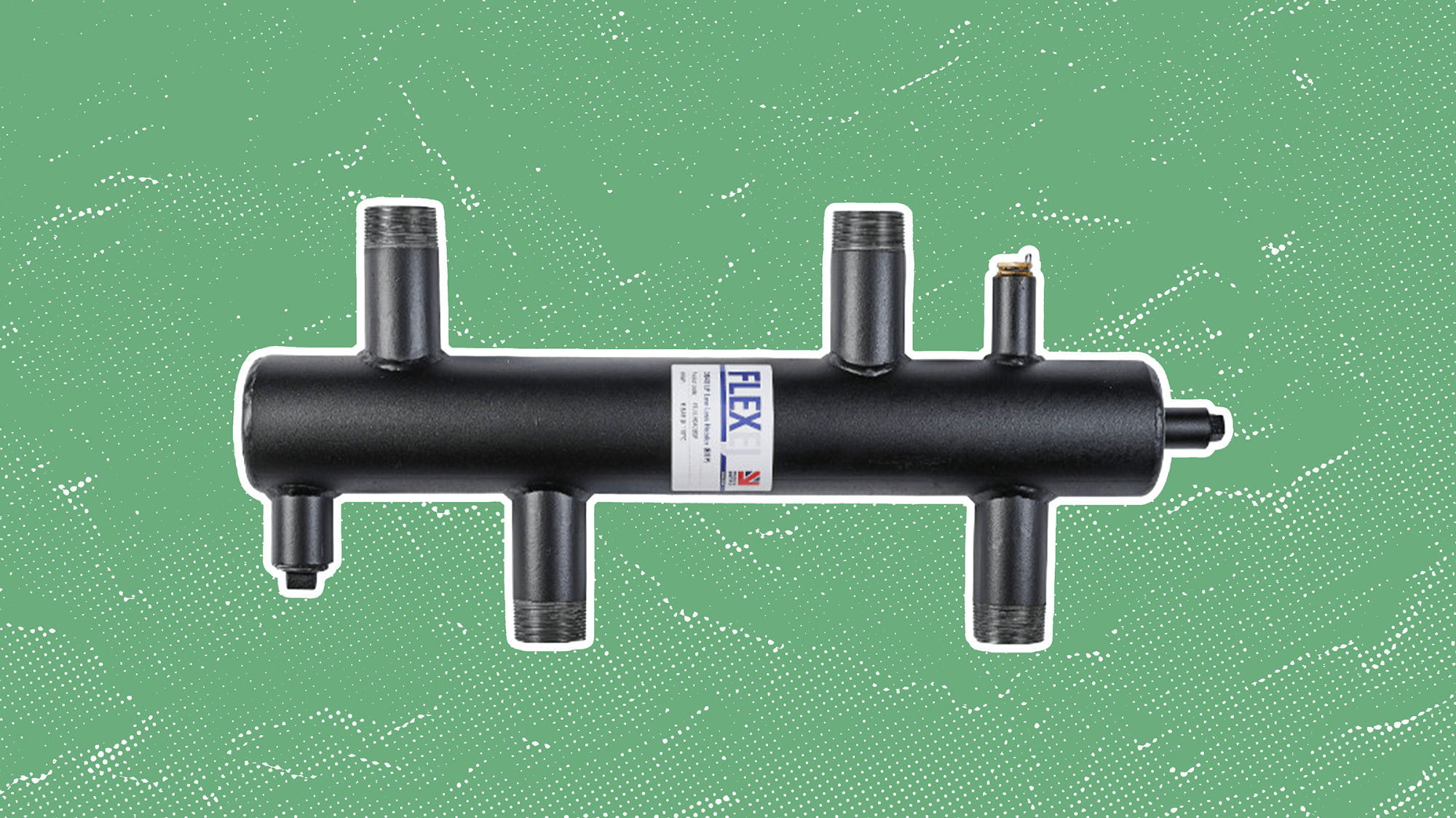
Typically, when this happens a relevant fault code will be displayed on the boiler interface indicating a frozen condensate pipe.
It is a common issue when the condensate pipe is installed on the exterior of the home, where it is exposed to low temperatures and so more prone to freezing. If your condensate pipe freezes over in summer, we’ve entered the end times and your boiler is the least of your problems.
Often, this issue can be resolved quite easily by thawing out the contents of the pipe. For long-term prevention, it is a good idea to insulate the pipe and if installed externally, get an engineer to relocate the pipe. Ideally, the pipe spans the internal space of the home as much as possible.
Have an issue with your Potterton boiler? Read our in-depth guide on Potterton Boiler Problems, or if you have a Vaillant and are experiencing the F28 code, read our full guide on the Vaillant F28 error.
#7 Boiler Not Responding To Thermostat
The majority of people control their boiler’s heating schedule and the temperature of their central heating via the thermostat, so when your boiler stops responding to thermostatic control, it can cause considerable disruption.
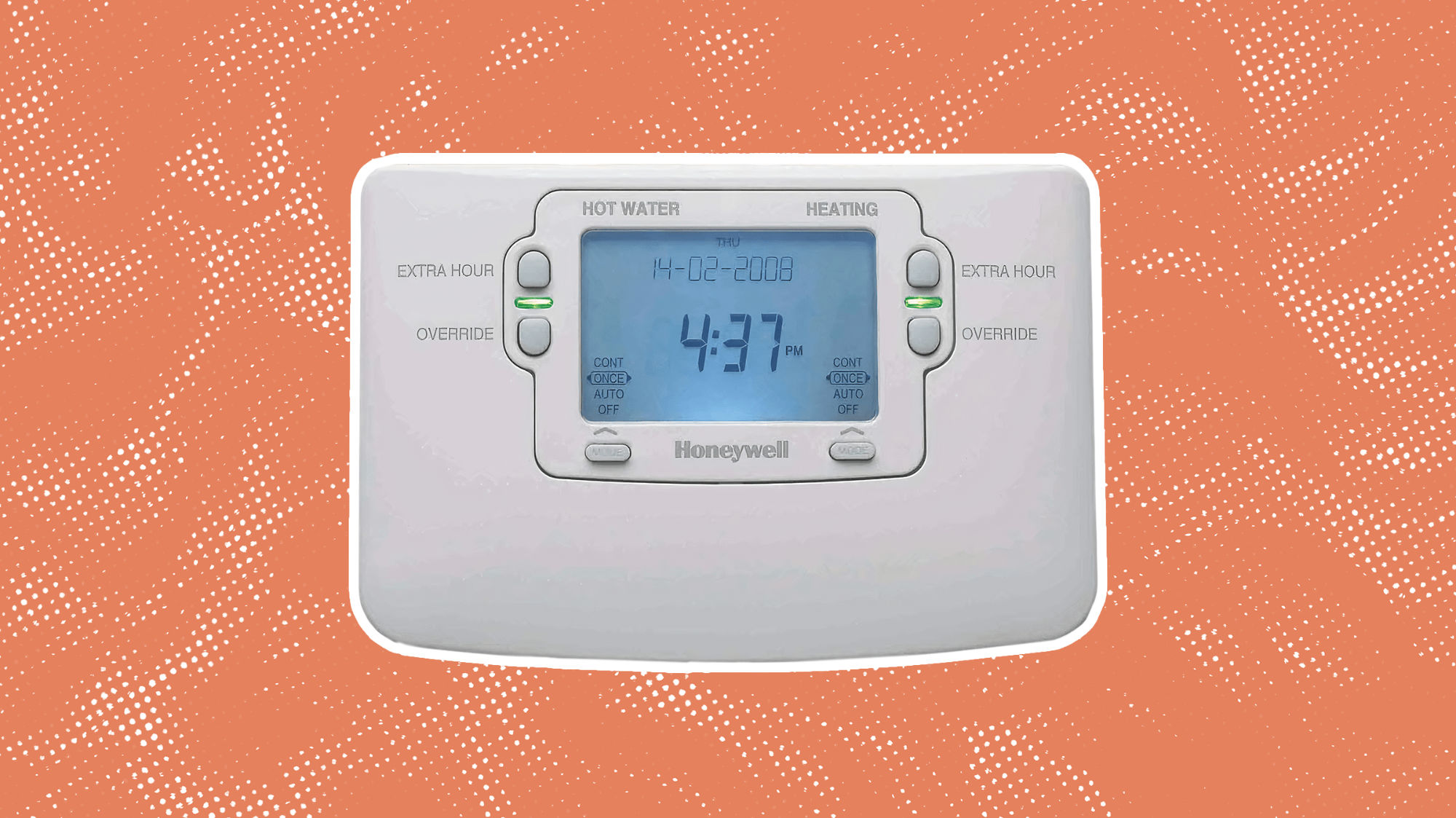
So, what may be causing a thermostat syncing issue, aside from a robot revolution?
You first want to try the obvious, simple things – ensure the batteries do not need changing and make sure it is synced with the new time if the clocks recently changed.
However, if the boiler shows no sign of response, you should contact the thermostat manufacturer for assistance.
Does your Worcester boiler display an error code? Find out what it means in our comprehensive Worcester error code list.
Related thermostat guides:
#8 Hot Water Doesn't Work But Heating Does
This boiler problem is common in older boilers that have had a lot of use and considerable wear and tear. It usually happens due to a faulty diverter valve.
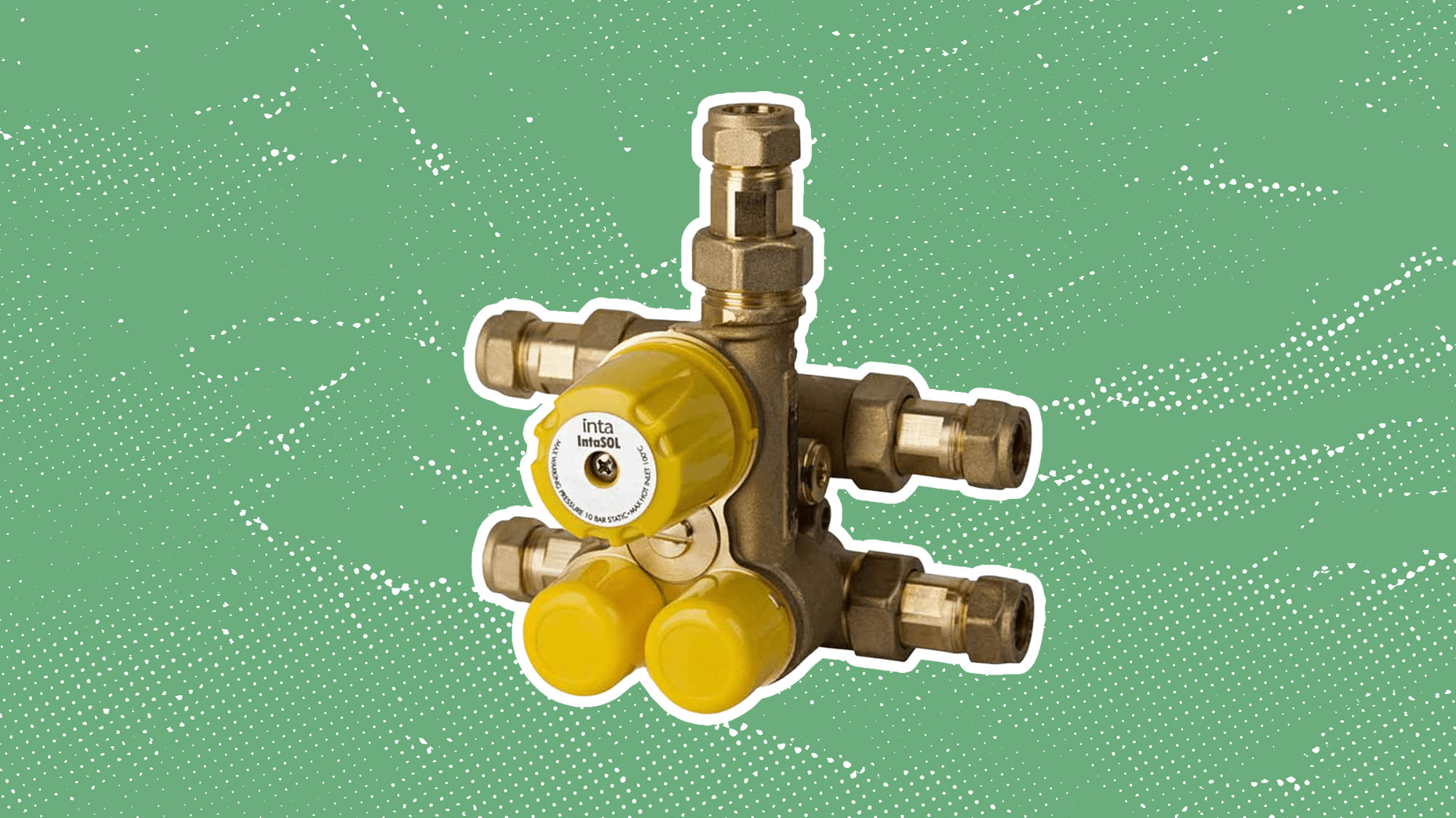
The diverter valve's function is to divert the hot water between the water outlets e.g. taps and shower, and the central heating. It’s the air traffic controller of the hot water in your house.
For example, when you turn your hot water taps on, the valve will close the water to the heating and when you turn them off, the valve will open back up, allowing water to flow to the radiators.
In theory, that means your house cools down a little while you’re in the shower, but this isn’t the reason you feel cold when you get out of your hot shower.
However aged diverter valves are prone to sticking, meaning that the valve can get stuck, resulting in lukewarm or cold water. You can read our full guide on faulty diverter valves and get some tips on how to resolve the issue.
Unfortunately, diverter valve replacement can be incredibly expensive, costing an average of £400-£500. So, if your boiler is old and your warranty expired, it may make more financial sense to get your boiler replaced.
Related troubleshooting guides:
#9 Pilot Light Keeps Going Out
Older boilers do not have electronic ignition, so need to be kept switched on in order to ignite the fuel within the combustion chamber. This is the pilot light, which is in charge of flying your ignition to its final destination. If the ignition keeps turning off, you may have a boiler problem.

This could be related to a faulty thermocouple switching off the gas supply, a draught that is getting into the boiler blowing out the flame, or a house troll that keeps blowing it out. Another common issue is carbon deposits on the pilot light, which may need to be cleaned away.
Ultimately, as this component is so intrinsically linked to the gas supply, it’s advised that you seek the assistance of a registered Gas Safe Engineer who will be able to safely inspect, diagnose and repair the pilot light issue.
#10 Boiler Won't Turn On (No Power)
If your boiler won’t turn on as there’s simply no power to boiler, the issue will likely be an electrical one.
First of all, verify that the issue is isolated to your boiler alone by checking the rest of the appliances in your home. If they all seem to be working and it’s just your boiler, then it’s likely a boiler problem. If it’s not plugged in and you didn’t realise that before you called an engineer, it’s a you problem.
Typically, a boiler not turning on will be related to the PCB (circuit board) which may be broken and need replacing or repairing. Unfortunately, this is not cheap and will typically set you back a few hundred pounds for parts alone. Read our full guide on boiler PCB faults.
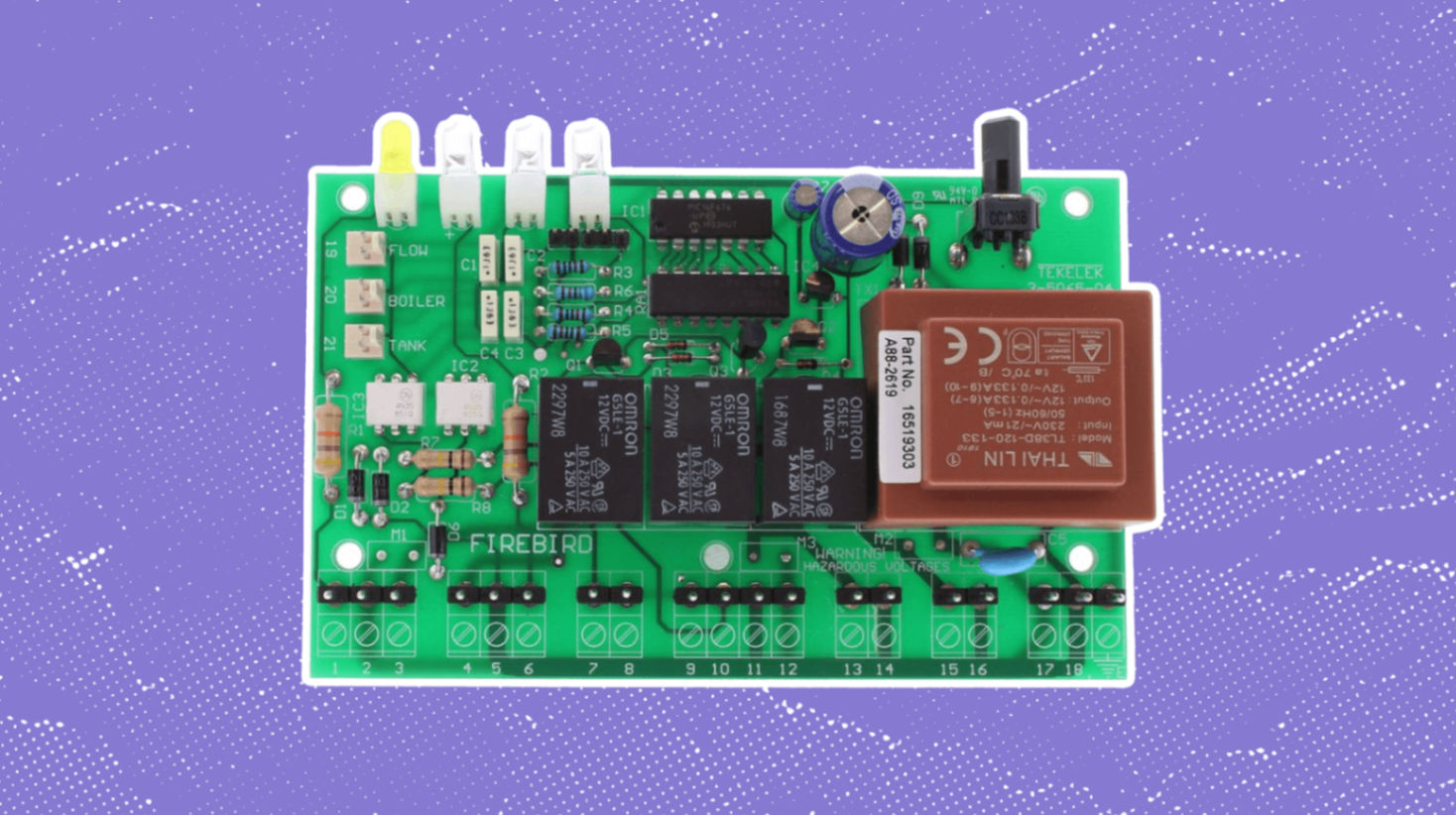
#11 Hot Water But No Heating
If you find that your hot water is working but your central heating isn't i.e. your radiators aren't warming up, the issue is likely related to your boiler settings or a faulty diverter valve.
The first thing to do, after you get your cold wife a blanket, is to check your radiator settings - make sure the thermostatic valves aren't closed.
Also, check your boiler settings, and make sure the central heating is turned on, this will vary depending on your boiler model, but in many cases, there is an on/off button for heating.
If these solutions don't work, then the issue is likely the result of a faulty or broken boiler component, most likely a faulty diverter valve. Read our full guide on faulty diverter valves.
#12 Boiler Not Heating Water Enough
If you are finding that the water running from your hot taps is lukewarm and won't get any hotter, you may have a boiler problem and a terrible time in the shower. This issue can be even worse if it's also impacting your radiators too.
This can be caused by a fault in a boiler component, commonly this can include a faulty thermostat, a faulty heat exchanger or a faulty diverter valve.
A potential DIY solution is to turn your heating on and test if the water from your taps gets any hotter.
If you find that your radiators are working normally, but don't get warm when your water is running, you may need to replace your hot water thermistor.
The best part about this is that it's a relatively cheap component, so it's a good place to start your boiler troubleshooting.
If this fails the next step is to seek the assistance of a Gas Safe Engineer who will be able to carry out further investigations, diagnose the problem and fix the boiler quickly.
Ultimately, if your boiler has lost power and won’t turn on it can be caused by a variety of different problems. The only way to find out the root of the problem is to have a registered Gas Safe Engineer take a look.
Unfortunately, if it is the PCB that needs replacing and your boiler is no longer under warranty it probably makes more financial sense to get a brand new boiler installed rather than a replacement PCB.
An old boiler no longer under warranty is likely to experience more issues and require more expensive repairs, so why invest in such an expensive component in a boiler likely to be on its way out?
Do You Need A New Boiler?
In some cases, replacing a boiler can make more financial sense than continuing to repair it. Here are the key factors to consider:
Age of the Boiler - If your boiler has surpassed its average lifespan (typically beyond 15 years) and is no longer covered by the manufacturer’s warranty, replacing it may be a more cost-effective option to avoid recurring repair expenses.
Repair Costs - When the cost of repairing the boiler exceeds 50% of the price of a new one, it’s usually more financially sensible to invest in a replacement rather than continuing with costly repairs.
Frequency of Breakdowns - If your boiler is breaking down more frequently, it’s often a sign of significant wear and tear and it is beyond economical repair. In such cases, replacing the boiler can help avoid mounting repair costs and the inconvenience of ongoing issues.
Energy Efficiency - Older boilers tend to be far less efficient than modern models, leading to higher running costs. Upgrading from a G-rated to an A-rated boiler could save you up to £385 per year in energy bills, making replacement a financially smart decision in the long run.
By carefully weighing these factors, you can determine whether replacing your boiler offers better value and peace of mind compared to continued repairs.
Next Steps For Your New Boiler Journey:
When planning to install a new boiler for your home, there are several important factors to consider. Make sure to refer to the following guides to help you make informed decisions:
To dive deeper into these topics, head over to our advice section, or check out our YouTube channel to learn more.
Get a Quote for a New Boiler Today
If you’re aiming to get the best deal on a new boiler, consider getting a quote from us, here’s why:
Gas Safe installation within 24 hours.
Thousands of satisfied customers with an average score of 4.9 on Trustpilot, surpassing the market leader.
Which? Trusted Trader: Heatable is proudly recognised as a Which? Trusted Trader.
Price match guarantee: We will match any like-for-like cheaper quote.
Flexible payment options, including interest-free finance.
Up to 12-year guarantee on selected boilers.
Fixed price guarantee: No hidden costs.
Save your quote and decide later.
Get an instant fixed price on a new boiler, here.
To learn more about boilers, visit our advice section, check out our YouTube channel, or read customer testimonials here.
Heat Happy.





